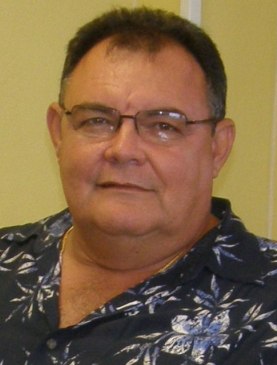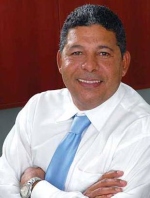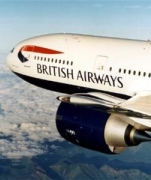Archive for November, 2009

Cayman suffers double the doses of flu
 (CNS): With no signof any swine flu vaccine coming to the Cayman Islands until the New Year, public health officials have confirmed that this year’s flu numbers are double those of the same time last year. There has been an average of 120 cases weekly, but an increase this past week saw the stats rise to 176. Flu has been increasing since the schools opened in September but government officials said there would be no school closures and healthy children should be attending. Officials also said that it is very likely H1N1 which is causing the massive increase.
(CNS): With no signof any swine flu vaccine coming to the Cayman Islands until the New Year, public health officials have confirmed that this year’s flu numbers are double those of the same time last year. There has been an average of 120 cases weekly, but an increase this past week saw the stats rise to 176. Flu has been increasing since the schools opened in September but government officials said there would be no school closures and healthy children should be attending. Officials also said that it is very likely H1N1 which is causing the massive increase.
“There has been a notable increase in flu activity this past week with 176 cases reported,” Medical Officer of Health Dr Kiran Kumar said. “On a weekly average there have been about 45-50 children and 5-9 staff in schools and pre-schools that have reported flu-like symptoms, with a slight increase in the last week.
The data compiled by school health nurses showed that the flu case began rising after the September school opening, peaking in the third and forth weeks of that month. “We ask teachers and students to be diligent with hand washing and cover their coughs and sneezes. Most importantly, parents must keep sick children at home,” Dr Kumar urged, adding that there is no need for healthy children to stay away from school.
Common symptoms to look for include fever, sore throat, coughing and a runny nose. Dr Kumar noted that if children experience mild illness, then parents can treat them with over-the-counter fever medication. “You only have to seek medical attention when needed. We know that we are in the midst of a global pandemic, and as such we can assume that most flu cases are from the H1N1 virus. And so, there is no longer any need to test every case,” he explained.
Education Chief Officer Mary Rodrigues said that schools continue to monitor the situation closely, and she also asked parents pay attention to public health advice: “We are in the beginning of flu season, and we should all play our part in minimizing the spread of the virus.”
For more information on H1N1 visit www.CaymanPrepared.ky or www.hsa.ky. The Health Services Authority has established a Flu Clinic and has a flu email and message system – flu@hsa.ky – where residents can get more information.

Solicitor General appointed as Queen’s Counsel.
 (CNS): Cheryll Richards and four other members of the Cayman Islands legal community have been appointed as Queen’s Counsel. Along with the solicitor general, Langston Sibblies, General Counsel to the Cayman Islands Monetary Authority; Justice Angus Foster, former Partner of Walkers and Acting Grand Court Judge; Kenneth Farrow, formerly Partner at Quin & Hampson and now Counsel at Mourant du Feu & Jeune; and Neil Timms, former partner of Maples and Calder, and now from his own Chambers in George Town have also been awarded their ‘silks.’
(CNS): Cheryll Richards and four other members of the Cayman Islands legal community have been appointed as Queen’s Counsel. Along with the solicitor general, Langston Sibblies, General Counsel to the Cayman Islands Monetary Authority; Justice Angus Foster, former Partner of Walkers and Acting Grand Court Judge; Kenneth Farrow, formerly Partner at Quin & Hampson and now Counsel at Mourant du Feu & Jeune; and Neil Timms, former partner of Maples and Calder, and now from his own Chambers in George Town have also been awarded their ‘silks.’
QCs are recognised as the most eminent members of the Bar and bestowed in line with a 400-year-old tradition originating in the UK but now observed in Commonwealth countries. Queen’s Counsel, or King’s Counsel (KC) during the reign of a male sovereign, are lawyers appointed by letters patent to be one of "Her Majesty’s Counsel learned in the law".
“The recognition of Queen’s Counsel comes with an understanding that appointees will do a fair amount of public interest or pro bono work,” said the CJ.
Historically, as well as giving counsel to the monarch, it was envisaged that Queen’s Counsels’ roles would extend to cases involving claims by ordinary people against even the King or Queen of the day, the Chief Justice said, alluding to the public-spirited nature of service expected of QCs.
According to the criteria in the UK, the award of Queen’s Counsel is for excellence in advocacy in the higher courts. It is made to experienced lawyers, both barristers and solicitors, who have a right of audience in the higher courts and who have demonstrated the competencies to a standard of excellence.
The Queen’s Counsel tradition began, the chief justice noted, on the public side of the administration of justice, and in the UK, where it had its genesis, attorneys general and solicitors general of England and Wales are automatically made QCs. This, he said, is by virtue of the fact that the achievement of such status obviously implies eminencein the law.
Solicitor General Richards, who has been practising law since 1986, joined the Chambers of the Attorney General of the Cayman Islands in 1996, serving as Crown Counsel Criminal and later as Senior Crown Counsel International before her appointment as Solicitor General in 2005. As Solicitor General she acts for the Attorney General in his absence and appears in the Grand Court and the Court of Appeal in matters of importance.
Sibblies who has over 34 years experience at the Bar came to the Monetary Authority in September 2000 and was appointed Chairman of the Cayman Islands Law Reform Commission in July 2006. He was appointed the first Executive Director of the Secretariat in the Portfolio of Finance in 1999 and has represented the Cayman Islands over the years at such forum as the International Monetary Fund (IMF), the Caribbean Financial Action Task Force (CFATF), and the Organisation for Economic Development and Co-operation (OECD), among others.
Justice Foster has had a long-standing record of service as a lawyer and has been admitted to the Bar in the Cayman Islands for over 28 years and has appeared in many of the most significant cases before the Courts, not only in the Grand Court but also the Court of Appeal and the Privy Council. He has been acting as a judge in the Grand Court for just over two years.
Kenneth Farrow, who was called to the Bar by Gray’s Inn, London, in 1966, was admitted as an attorney-at-law in the Cayman Islands with Quin & Hampson, dealing with corporate, commercial and trust litigation and corporate (including Cross-Border) insolvency, trusts and probate. He became a Partner at Quin and Hampson in 2004 and Counsel at Mourant du Feu & Jeune in 2007. Neil Timms, who was called to the Bar in England and Wales in 1974 was first admitted as a Cayman Islands attorney in 1989, when he was engaged by Maples and Calder. For the past three years he has been in sole practice as an attorney, largely in the areas of commercial, trust and insolvency referrals. He has also acted as an arbitrator.
Jack thanked the new Silks for their commitment to the public and noble service that he said this new honour denotes, and wished them continued success.

Governor is no show at PAC
 (CNS): The chair of the Public Accounts Committee said he was very disappointed that the governor, Stuart Jack, had chosen not to attend Wednesday’s PAC meeting to respond to questions raised by the auditor general’s report on the expenditures for Operations Tempura and Cealt. Ezzard Miller noted that the presence of the governor would not only have given the committee an opportunity to ask what had happened with the spending on the investigations but his presence would have demonstrated the importance of the PAC to issues of good governance.
(CNS): The chair of the Public Accounts Committee said he was very disappointed that the governor, Stuart Jack, had chosen not to attend Wednesday’s PAC meeting to respond to questions raised by the auditor general’s report on the expenditures for Operations Tempura and Cealt. Ezzard Miller noted that the presence of the governor would not only have given the committee an opportunity to ask what had happened with the spending on the investigations but his presence would have demonstrated the importance of the PAC to issues of good governance.
Despite the fact that the governor chose not to appear, RCIPS Commissioner David Baines and Deputy Governor Donovan Ebanks both turned up to answer questions and did their best to shed light on the spending associated with the discredited investigations.
Baines said that he felt like he had arrived when the party was over with regard to the issue of Operation Tempura and Cealt, but his goal now was to use the findings of Cealt to bring the internal investigation into police corruption in house.
He explained that there would be a new RCIPS investigation team formed to pursue the allegations, which coincided with the need to establish an anti-corruption unit under the new Cayman Islands Constitution. Above all, he said, once the legal and disciplinary matters left over from Tempura were finalized, the spin off from Operation Cealt would be financed out of the existing police budget and the treasury would not be required to cough up any more cash in relation to the tainted investigations.
He admitted he was not familiar with the consulting firm, BGP, as used by Operation Tempura, which, according to the auditor general’s report, cost close to $600,000 to gather information from people making accusations against serving police officers, but he said the Metropolitan Police tended to use who they knew. As a result, he concluded that it could look like the ‘old boy network’ had been in play when the firm was engaged.
Following the commissioner, Donnie Ebanks spoke at some length about how, from the very beginning, by using the Metropolitan Police the CIG was setting itself up for an expensive project. Admitting that he was involved in the negotiations of senior investigating officer Martin Bridger’s contract, he said the SIO did not come cheap and, given the circumstances he was faced with, he had little choice but to re-engage him. He explained that Scotland Yard had told Cayman that the officers who were engaged as consultants by the Met should really be employed directly by the CIG .
The deputy governor spoke about the criticisms that had been made about the SIO’s salary, but he said the problem was not whether he was paid $100,000 or $120,000 but that he may have been too expensive in the first place. “Without getting into the details of ’going rates’, he was not substantially over compensated for his service,” Ebanks observed. Making analogies to being in a luxury car showroom and choosing between the cost of a Daimler or a Rolls Royce, Ebanks said the question was whether we should have been in the luxury car showroom shopping for a Rolls Royce at all.
Although Ebanks did not condemn the investigation outright, he made it clear that the moment Cayman chose to engage the Met, the country was set to pay top dollar. Moses Kirkconnell, the MLA for the Sister Islands, summed up the situation when he said it seemed that the CIG "for a Rolls Royce but ended up with a clunker.”
Ebanks made no comments on the outcomes of the investigations but indicated that the operation was entirely the responsibility of the governor and not the strategic oversight committee. He said that committee was there merely to facilitate local issues for the investigators and to monitor the impact on the local community, not to supervise the investigation or interfere with operations.
Ebanks also observed that the experience had served as a lesson and perhaps there needed to be changes in the way government does business. He said that the idea that anyone who the Foreign and Commonwealth Office picks is fully equipped to dischargetheir duties, and as a result local representatives must leave all their trust in them, is not one he subscribed to.
The PAC chair echoed the deputy governor’s sentiment and observed that it was essential that going forward there would be more local input and control in such things.
During the questioning of witnesses, the committee also asked the AG Dan Duguay if he could say whether the investigations had represented value for money given all that had transpired. Duguay explained that, as he had stayed well away from looking at operational issues and looked solely at expenditure, he could not offer a real opinion because of the unique nature of the investigation.
He made observations in his report, however, about how the financial expenditure had not been managed during the investigations and that there was a lack of appropriate project management when it came to supervising how money was spent.
Spirit Airlines makes emergency landing
(CNS): UPDATE – Owen Roberts Airport was placed on full emergency standby Wednesday evening as a Spirit Airlines Airbus carrying approximately 140 passengers made an unscheduled landing. CNS understands that the pilots made the emergency landing on Grand Cayman after smoke was seen in the cockpit. The Cayman Islands Airports Authority (CIAA) confirms that at 6:18 pm on 25 November a commercial airline with approximately 133 passengers onboard made an emergency landing at Owen Roberts International Airport (ORIA) on Grand Cayman. (Photo courtesy News27)
All airport emergency services were put on standby and the aircraft landed without incident. The aircraft, operated by Spirit Airlines, was en route to Ft. Lauderdale from Managua, Nicaragua, when permission to land in Grand Cayman was requested. The aircraft departed Grand Cayman at 10:34 pm.
No eye-witnesses to murder
(CNS): The solicitor general told the court on Wednesday afternoon that there were no eye-witnesses to the brutal murder of Sabrina Schirn, but the prosecution would demonstrate that the 21-year old had died at the hand of the defendant, Randy Martin (left), through a collection of circumstantial and forensic evidence. Cheryll Richards opened the case against Martin in the Grand Court in front of Justice Charles Quin, who will be hearing the trial without a jury. Richards said that Martin was known to the deceased, and on the day of her murder they had met in the vicinity of the prison farm.
The solicitor general told the court that Martin had the opportunity to commit the crime and cover his tracks and that circumstantial evidence will reveal he was the murderer. She said that Schirn died from multiple chop and sharp wounds to her upper body inflicted by Martin, who had arranged to meet her that day, when something had gone wrong at their meeting.
Crown counsel said the prosecution would show that the defendant had been in the car which Schirn had driven to the spot where she was killed. Richards stated that, after he had murdered her and left her body in the bush land near the farm, where the defendant was working on release from the prison, he had taken the car and abandoned it at another location. Before he returned to the farm, she said he had ample opportunity to dispose of the weapon or tools he used to kill Schirn, as well as the clothes, which were stained with her blood, but the decesased’s blood was still found on him.
Richards told the court that the prosecution would prove that Schirn had gone to the farm at the time that Martin was working there, met him and then gone with him to the deserted building where he killed her.
Following Richards’ brief opening statement, the prosecution called its first witnesses, who was a colleague of Schirn’s from the video rental store, Blockbusters in Grand Harbour, where the two girls worked together. She told the court how Schirn had come into the store on 11 March, even though it was her day off, to ask the witness if she could borrow her car to go collect her boyfriend from North Side. The witness said she had refused and they then spoke for a few minutes before the witness moved away from the counter, where they chatted, to re-shelve returned DVDs, and soon after Schirn left the store.
The witness then revealed how, when she went on her break some four hours later, she discovered her car keys were missing but Schirn’s keys were in their place. Having gone to check on her own car, the witness found that Schirn had taken it but left her car parked near to the store. Having tried and failed to contact Schirn by phone several times, the witness told the court how she eventually left that evening in Schirn’s car when she finished work.
Despite calling Schirn and looking for her that night, in the local clubs that the witness said she knew Schirn liked to visit, she did not make contact with the deceased or find her own car parked in any of the familiar spots.
The next day when Schirn failed to show up for work, the manager of the video store reported her missing to the police. When the police refused to accept the missing person report as she was not a family member, the witness said they made contact with Schirn’s family. The witness confirmed to the court that she never saw Schirn or her car again. The witness said she did not know the defendant and he never been in her car as far as she was aware.
During cross examination by Martin’s counsel, David Evans QC, the witness told the court that Schirn had asked to use the witness’s car as she did not want to take her own car to North Side because an ex-boyfriend was also working in the area and she wanted to avoid the possibility of him seeing her meet her new boyfriend.
The witness, however, confirmed that she had still refused Schirn permission to take her car as it was registered to her father and she was not in a position to say yes.
The case resumes in Grand Court One on Thursday morning at 10:00 am with the crown’s second witness.

TJI told to quit as suit filed
 (CNS): The Cayman Islands Government has issued a written notice to Tom Jones International Ltd of its intention to terminate the construction contracts for the John Gray and Clifton Hunter school projects, over what it states is a substantial breach of those contracts. Meanwhile, one of the main sub-contractors working on both of the sites has also filed a law suit against the general contractor, TJI, for over $2.2 million, plus interest and costs, after invoices remained unpaid in contravention of the terms of the sub-contract, the writ claims.
(CNS): The Cayman Islands Government has issued a written notice to Tom Jones International Ltd of its intention to terminate the construction contracts for the John Gray and Clifton Hunter school projects, over what it states is a substantial breach of those contracts. Meanwhile, one of the main sub-contractors working on both of the sites has also filed a law suit against the general contractor, TJI, for over $2.2 million, plus interest and costs, after invoices remained unpaid in contravention of the terms of the sub-contract, the writ claims.
The government confirmed that an official seven day notice had gone to TJI on Wednesday, 25 November, as it was forced to protect its interests and to mitigate the costs and schedule damages associated with the substantial breaches of the contract by Tom Jones International Ltd. Sources close to the situation told CNS that the termination notice was based on a number of issues, including TJI’s abandonment of the project and its failure to pay sub-contractors.
Attorneys for Caribbean Mechanical Limited, part of the Andro Group owned by Allen Roffey and one of the sub-contractors that says they have not been paid, filed the writ of summons in the Cayman Islands Grand Court on Tuesday, 24 November.
The plaintiff says that TJI has failed to pay the progress payment of $1,081,966.55 for work undertaken in September at the Clifton Hunter site and a sum of $1,161,256.29 for work at the John Gray site, despite the due date being passed and the contractor having received its payment from government.
In the statement of claim, Caribbean Mechanical explains that it entered into two sub-contracts with TJI, one on 1 May and one on 7 May 2008, to carry out mechanical, electrical, plumbing and building services at the John Gray and Clifton Hunter school project sites.
The plaintiff states that, according to the contracts, progress payments are to be made every month following the submission for payment by the sub-contractor and once the architect’s certificates are issued. The legal document states that, although the September applications for payment were submitted on time, the architect had signed off and that government had paid the general contractor, TJI has not paid Caribbean Mechanical before the due date agreed.
The document also notes that, under the contracts which Caribbean Mechanical has with the general contractor, even if the Cayman Islands Government had not paid TJI, the general contractor would still be liable to pay the sub-contractor.
A spokesperson for TJI said that all matters are being disputed and will be vigorously defended by the general contractor.
Caribbean Mechanical was forced to lay-off around one hundred workers earlier this month when the ongoing dispute between government and TJI caused the contractor to down tools and stop work at both school development sites for the second time in the last few months. TJI claimed some $15 million in disputed change orders and publically stated it did not believe government could afford to build the schools. The company asked for a significant advanced sum and a form of financial surety or bond before it would return to work. Recent meetings with government have failed to bridge the impasse and government moved to terminate the contractors based on both an abandonment of the project and failure to pay sub-contractors with a seven day notice.
Since then literally hundreds of workers on the sites have been laid off by the sub-contractors on the sites and by TJI themselves.
Pocketknife stabbing at JGHS
(CNS): Update Wednesday 8:00pm — A stabbing incident at the John Gray High School this morning (Wednesday, 25 November) has been described an “altercation” between two female students, who have both been suspended from school pending an investigation. One girl received medical attention immediately at the school for two non-life threatening lacerations to her chest, apparently with a pocketknife. She was taken promptly to the George Town Hospital and, was due to be released this afternoon. (Photo courtesy News27)
According to the Education Ministry, the student alleged to have caused the injuries in this case was also involved in a previous incident during the last school year that resulted in another student being injured with a pen. The student was reintegrated into the school following disciplinary action and supportive intervention, according to release from the ministry. An RCIPS spokesperson told CNS the 911 Emergency Services received a call at 10:10am reporting the stabbing. The female suspect was taken into custody at the West Bay Police Station.
The ministry reported that a member of staff was in the process of interviewing one of the students when the other arrived and a confrontation ensued. This confrontation resulted in one student allegedly injuring the other with a pocketknife which had been hidden on her person. A teacher received a superficial injury when she and a security guard intervened, thereby preventing the incident from escalating.
The RCIPS responded to a call from the school within minutes and the incident is presently under police investigation, the ministry said. The school has instigated its standard response to serious incidents of this nature. The parents of the students involved were immediately notified and have been assisting in the case. The two students will be excluded from the school pending full investigation and a multi-disciplinary assessment will be undertaken and an intervention response decided. The students and staff of the school will be fully briefed in the morning and counseling will be made available.
Education Minister Rolston Anglin, Chief Officer Mary Rodrigues and Chief Education Officer Shirley Wahler visited the school this afternoon and have been fully briefed on the incident. Wahler noted that since September 2009, John Gray High School has initiated procedural changes which have significantly reduced the number of disciplinary incidents and the number of suspensions at the school. This was the first violent incident involvinga student bringing a weapon into the school compound this school year. It is recognized that this is a serious incident, but it appears at this time that it involves a personal dispute between the two students and pertains to matters arising out of school, the release said.
Any parents of students within John Gray High School with any questions should contact the Principal’s Office at 938-8571.

PAC issues summons to Joey
 (CNS): Following his failure to turn up to the Public Accounts Committee hearing today, Joey Ebanks, the former MD of the Turtle Farm, has been issued with a formal and legally binding summons for him to appear on 3 December. Ebanks was scheduled to appear as a witness on Wednesday morning, 25 November, to give evidence to PAC as it examined the auditor general’s report "Loans and Expenditures of Funds at Boatswain’s Beach". The report revealed the details of so-called salary advances or loans, as well as turtle meat bought on credit and bar tabs ran up by Ebanks during his tenure as the boss at the facility that amounted to over $50,000.
(CNS): Following his failure to turn up to the Public Accounts Committee hearing today, Joey Ebanks, the former MD of the Turtle Farm, has been issued with a formal and legally binding summons for him to appear on 3 December. Ebanks was scheduled to appear as a witness on Wednesday morning, 25 November, to give evidence to PAC as it examined the auditor general’s report "Loans and Expenditures of Funds at Boatswain’s Beach". The report revealed the details of so-called salary advances or loans, as well as turtle meat bought on credit and bar tabs ran up by Ebanks during his tenure as the boss at the facility that amounted to over $50,000.
At the opening of the meeting, which was held in public at the Legislative Assembly, PAC Chair Ezzard Miller told the committee that the Serjeant-at-Arms had been told that Joseph Ebanks, who was scheduled to be the first witness would not be attending. The members expressed their disappointment and observed that Ebanks had declared his intention publically on a number of occasions to attend to answer the report’s findings.
Auditor General Dan Duguay noted that Ebanks had said he did not feel he would get a fair hearing by submitting an answer in writing to the AG for the report and had wanted to defend himself at PAC. “We gave him several opportunities to respond to the report and he always said he would, but he never did and later said he would not have had a fair shot,” Duguay said, adding that his office had even delayed publication of the report to offer him time to comment. Duguay explained that whatever Ebanks would have submitted in writing would have been included in the report as his response.
Following his failure to show, PAC called Joel Walton, the former chair of the Boatswain’s Beach board, who said he felt Duguay’s report was accurate. The next witness was the farm’s Chief Financial Officerwho said he had signed off on some of the checks which were issued to Ebanks as advances. During the questioning of those two witnesses it was revealed that Ebanks had been signing off on his own salary advances (or loans) with the second signature on cheques coming from different members of the management team. It was also revealed that Ebanks had eventually paid the entire sum back in cash without any explanation of where the more than $50,000 in notes had come from.
As a result of the various questions that arose once the committee began examining witnesses, they agreed to issue the formal summons to Ebanks.

Britain`s air travel tax: a disaster for the Caribbean
 (CaribWorldNews): Britannia may no longer rule the waves but its imposition of the November 1 Air Passenger Duty tax has sent shock waves across the Atlantic that will wash up on Caribbean shores with a devastating effect on the region’s tourism industry. In spite of massive lobbying from home and abroad and objections from airlines, tour operators and tourism organizations including the Caribbean Tourism Organization, the British government went ahead with its plan to impose the allegedly `green` and controversial Airport Passenger Duty aimed at taxing aviation`s `carbon emissions.`
(CaribWorldNews): Britannia may no longer rule the waves but its imposition of the November 1 Air Passenger Duty tax has sent shock waves across the Atlantic that will wash up on Caribbean shores with a devastating effect on the region’s tourism industry. In spite of massive lobbying from home and abroad and objections from airlines, tour operators and tourism organizations including the Caribbean Tourism Organization, the British government went ahead with its plan to impose the allegedly `green` and controversial Airport Passenger Duty aimed at taxing aviation`s `carbon emissions.`

Jesus ‘may have visited UK’
 (The Independent): A new film suggests that Jesus may have come to Britain, as described in the hymn Jerusalem, its director said today. The documentary, And Did Those Feet, explores the story behind the legend which survives in the hymn, for which William Blake wrote the words. The legend claims Jesus visited several places in the West Country, such as the Roseland peninsula and Glastonbury, with his uncle, Joseph of Arimathaea. In the film, Scottish researcher Dr Gordon Strachan said it is plausible Jesus may have visited Britain to further his learning.
(The Independent): A new film suggests that Jesus may have come to Britain, as described in the hymn Jerusalem, its director said today. The documentary, And Did Those Feet, explores the story behind the legend which survives in the hymn, for which William Blake wrote the words. The legend claims Jesus visited several places in the West Country, such as the Roseland peninsula and Glastonbury, with his uncle, Joseph of Arimathaea. In the film, Scottish researcher Dr Gordon Strachan said it is plausible Jesus may have visited Britain to further his learning.